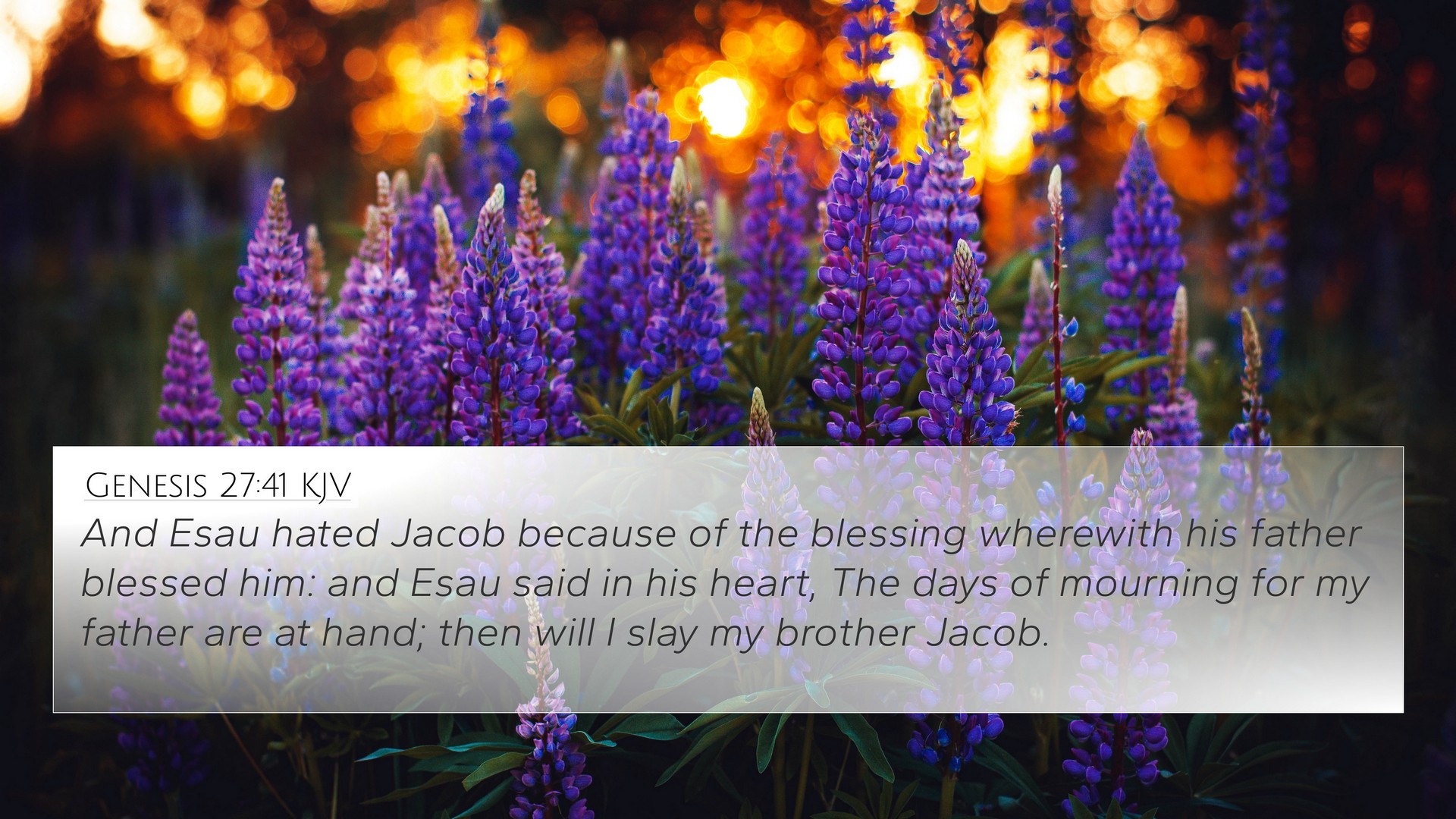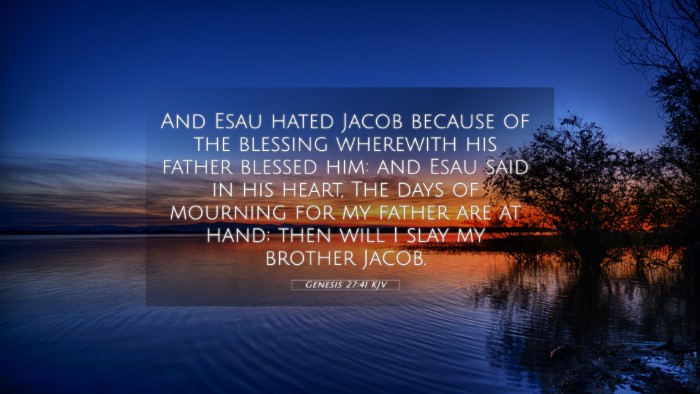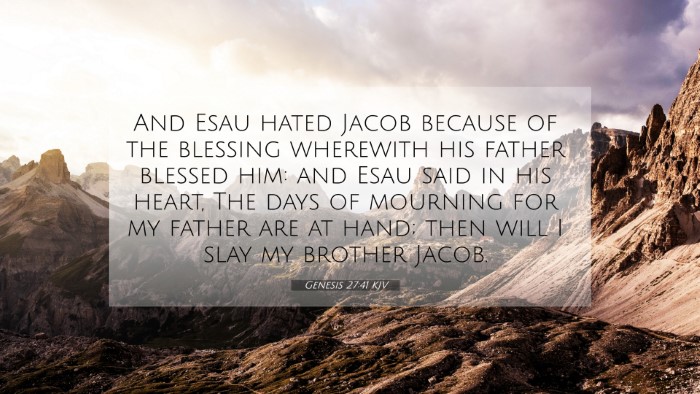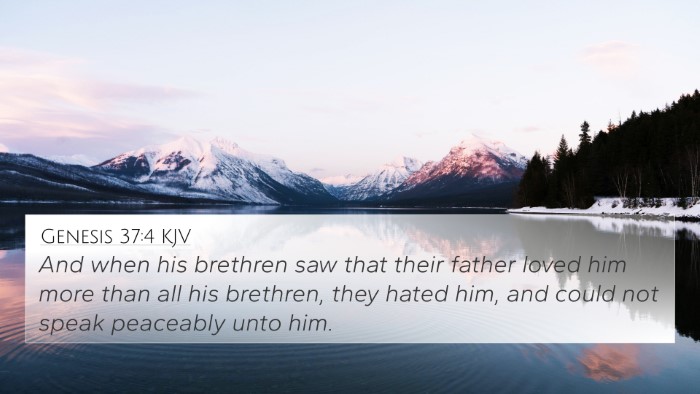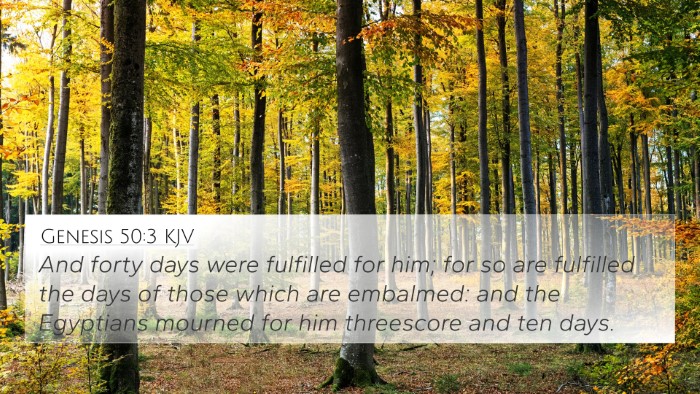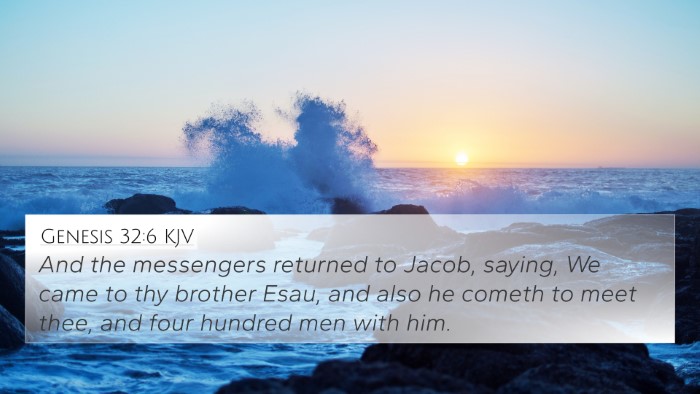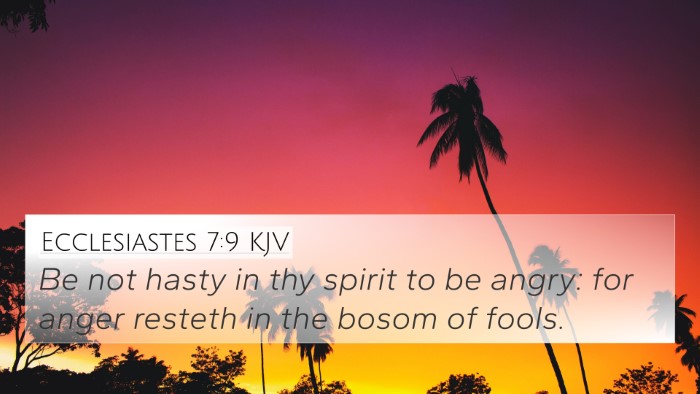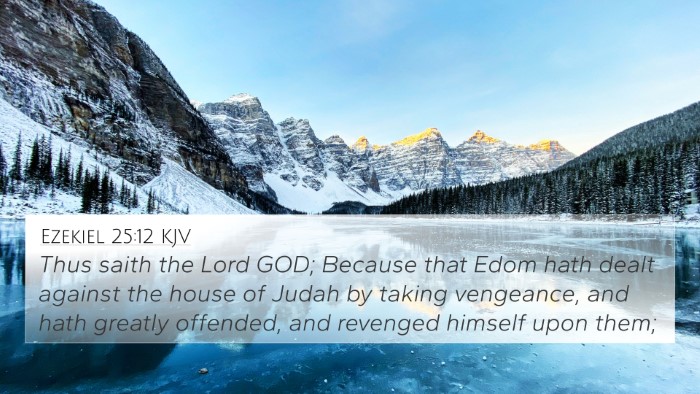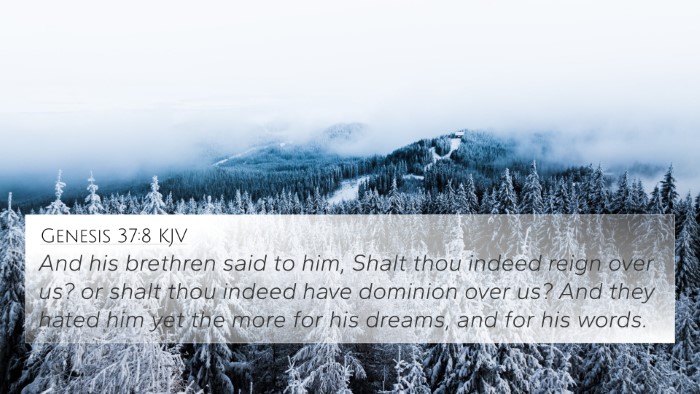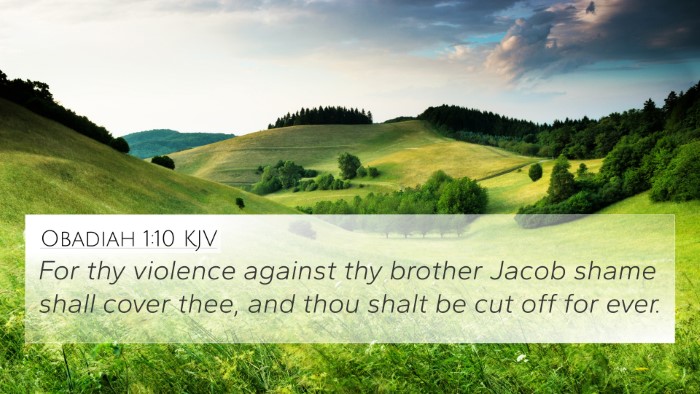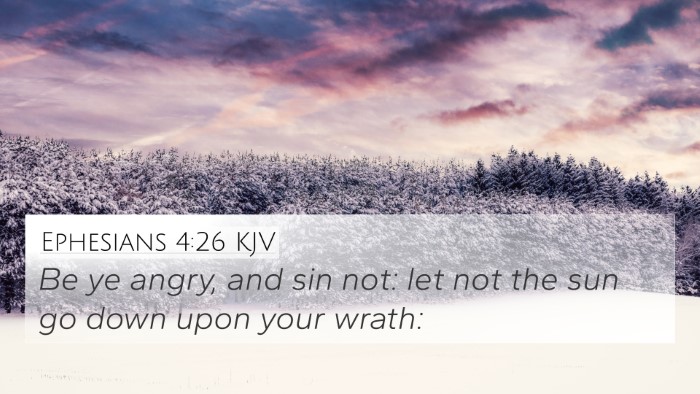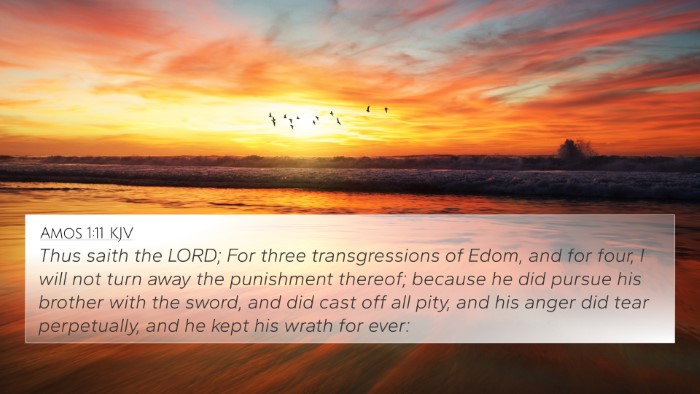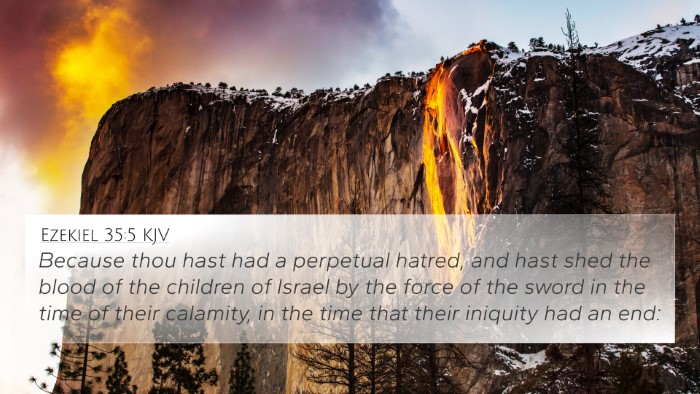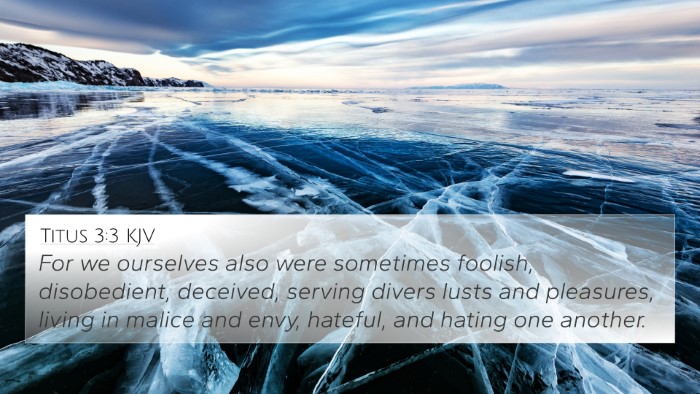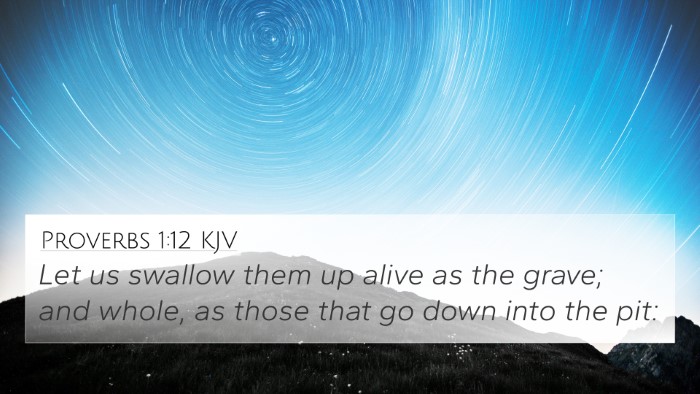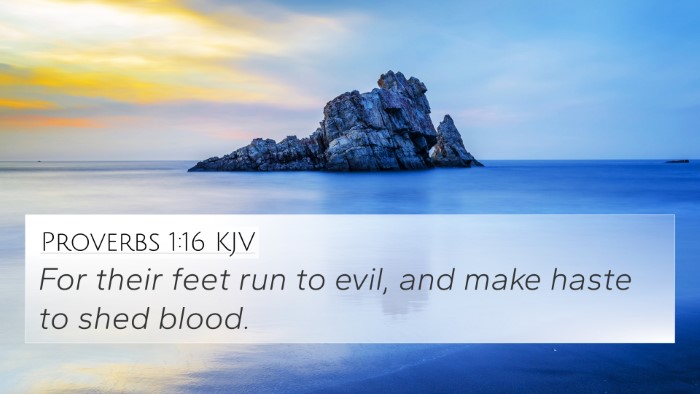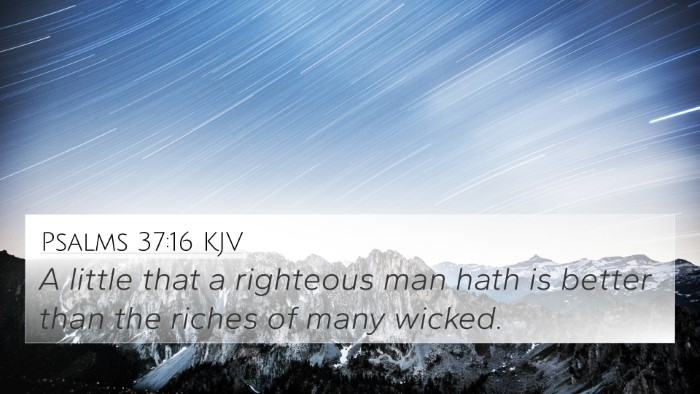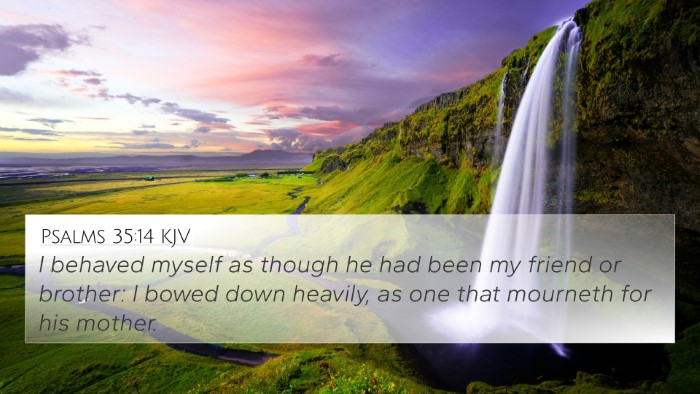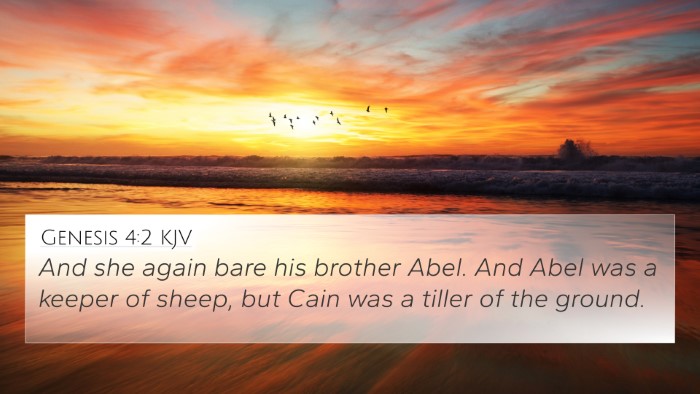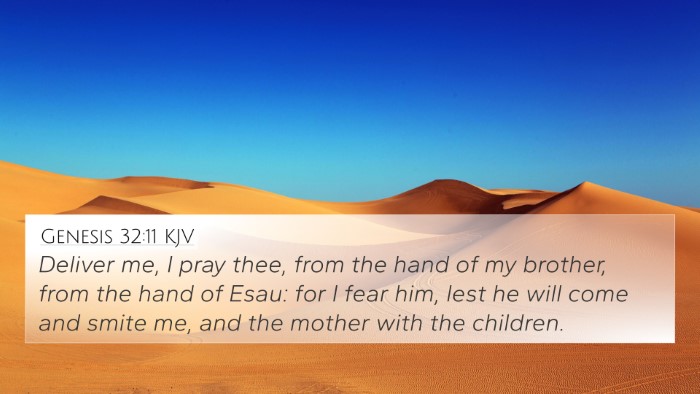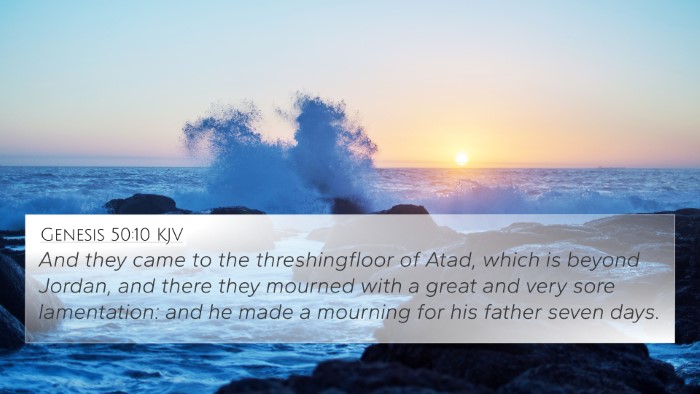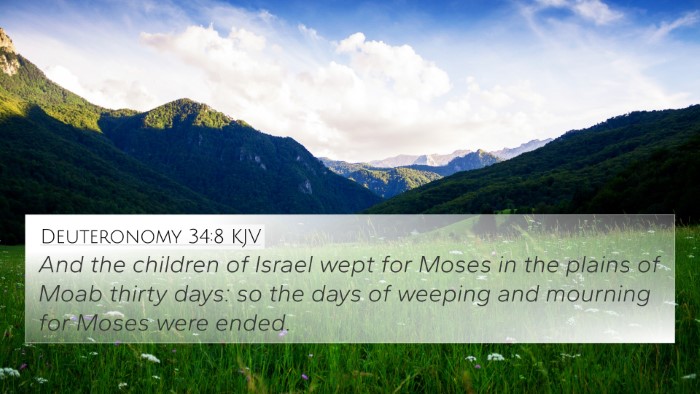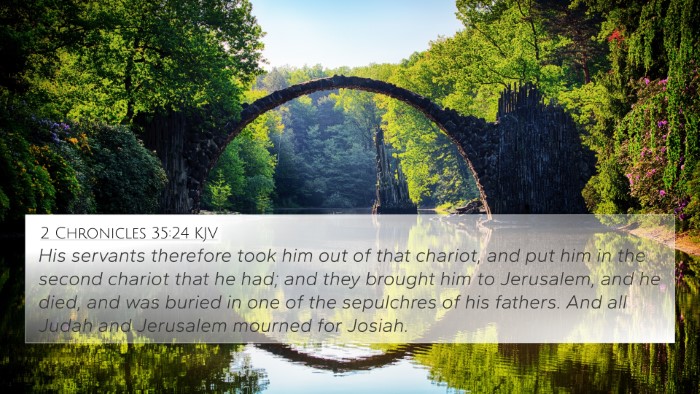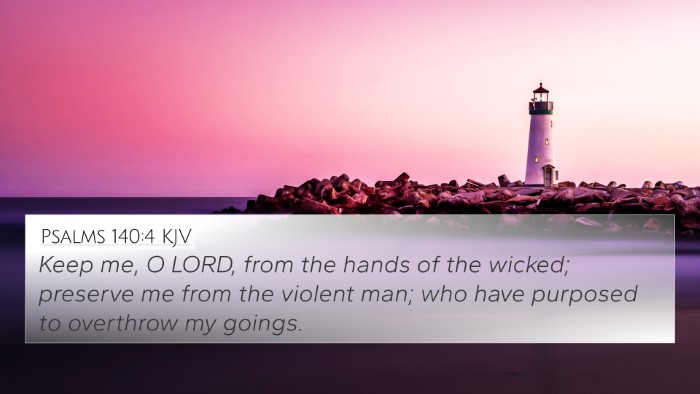Understanding Genesis 27:41
In this verse, we encounter Esau harboring deep resentment toward Jacob for having received his father Isaac's blessing. The verse reflects the emotional turmoil that arises from family conflicts and the consequences of deceit.
Context of Genesis 27:41
This verse is situated within a narrative that illustrates the complexity of familial relationships in the early Biblical context, particularly between Isaac, Rebekah, Jacob, and Esau. After Jacob deceives his father to obtain the blessing meant for Esau, a rift develops. Esau's feelings of anger and bitterness illustrate the broader themes of rivalry and division.
Bible Verse Cross-References
- Genesis 25:29-34 - The sale of Esau's birthright to Jacob demonstrates the beginnings of rivalry.
- Genesis 27:18-29 - Jacob’s deception unfolds, culminating in the blessing received from Isaac.
- Genesis 28:1-5 - Isaac’s blessing of Jacob and his departure, affirming the transfer of the covenant blessings.
- Malachi 1:2-3 - God’s later pronouncement about Jacob and Esau reinforces the divine choice amidst familial conflict.
- Hebrews 12:15-17 - Esau’s bitterness is highlighted, serving as a warning against spiritual negligence.
- Romans 9:10-13 - The discussion of God's sovereign choices in relation to Jacob and Esau's lives.
- Genesis 33:1-11 - Esau and Jacob's eventual reconciliation shows the healing of their familial rift.
Thematic Connections
Genesis 27:41 presents themes of anger, bitterness, and familial strife. Esau's sorrow serves as a cautionary reminder regarding the repercussions of envy and conflict.
According to Matthew Henry, this verse captures the essence of forbidden emotions that can lead to destructive outcomes in relationships.
Albert Barnes notes that Esau's grief is reflective of a larger narrative of a broken family, which suggests that disharmony can lead to greater spiritual consequences.
Adam Clarke emphasizes the loss that both brothers endure, highlighting that their rivalry is indicative of broader patterns of human sinfulness.
Comparative Bible verse analysis
The interplay between Jacob and Esau finds parallel expressions throughout Scripture. God's choice of Jacob over Esau (as later cited in Romans 9) raises fundamental questions about divine sovereignty versus human behavior.
This theme is reinforced when we consider cross-references that discuss the consequences of one brother's blessing over another, illustrating the profound effects of their actions across generations.
Inter-Biblical Dialogue
The narratives concerning these two brothers resonate throughout the Bible, serving as a backdrop for various lessons on sibling relationships, conflict resolution, and spiritual inheritance.
The struggles of Jacob and Esau prefigure the various conflicts present in later Biblical stories, exemplifying the persistent themes of redemption, rivalry, and the search for God's blessing.
Tools for Bible Cross-Referencing
Utilizing tools such as a Bible concordance or a cross-reference Bible study guide can greatly enhance one's understanding of verse connections like those found in Genesis 27:41. Engaging with cross-referencing Bible study methods allows readers to uncover deeper insights and thematic connections across the canon.
Conclusion
The emotional dynamics captured in Genesis 27:41 echo throughout Scripture, providing opportunities for readers to examine their own lives in relation to Biblical teachings on conflict, forgiveness, and family. The stories of Jacob and Esau reveal not only their personal failings but also God’s redemptive plan in the midst of human strife.
